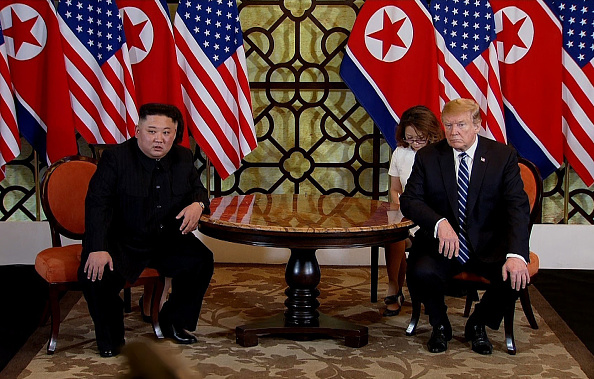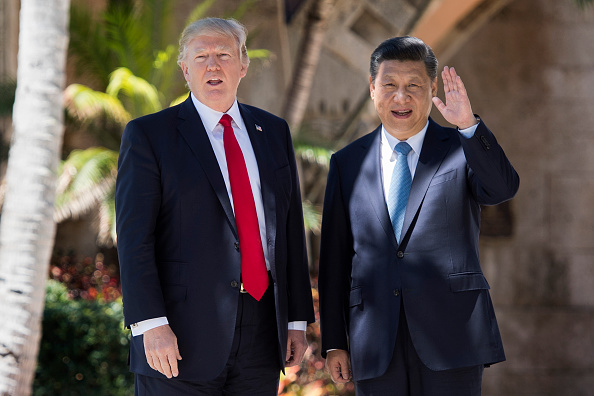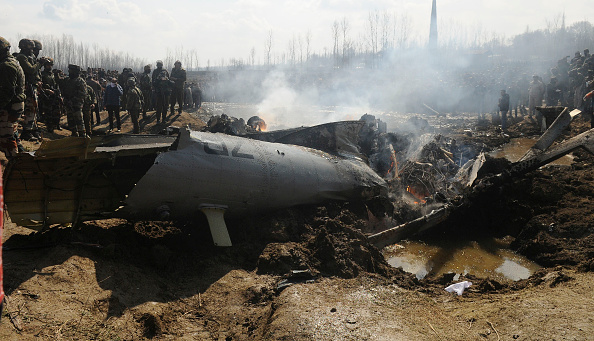
 The Art of No Deal
The Art of No DealNegotiations between North Korea and the United States fell apart as abruptly as they began this week, when US President Donald Trump walked out over North Korea's request for sanctions to be lifted, though there are conflicting reports of whether North Korea's leader Kim Jong Un had requested partial or full sanctions relief. The two delegations should have had "realistic expectations and be committed to embark on a new path of diplomacy," writes China-US Focus contributor Maria Rosa Conduti, rather than leave the negotiation table empty handed. Instead, analysts claim that the true winner of the summit is actually China.
As both negotiating partners seek a future agreement over denuclearization, Beijing could play a pivotal role in reaching a final deal. Chinese Foreign Minister Wang Yi has promised that Beijing will play a "constructive role" between the two sides.
China has historically favored a middle-of-the-road strategy in dealing with North Korea, opting for dialogue rather than hard line diplomacy. A destabilized North Korea on China's doorstep would be a highly volatile situation, and China has always chosen stability. This neutral stance could place Beijing as a central negotiating partner in any future discussions.
 Waiting to Exhale
Waiting to ExhaleWhile North Korea negotiations have collapsed, the Trump administration is now focused on reaching an agreement with China. Trump continues to send conflicting reports on the status of a potential end to the trade war. At times the administration says that "we are well on our way to doing something special" with China, and other times suggests that the United States will simply "walk away."
The original March 1st deadline for a deal to have been reached is now here, although the increase in tariffs on Chinese imports has been delayed, as Trump cites "substantial progress" in talks between the two sides, which include resolving issues regarding the stabilization of the yuan, according to China-US Focus contributor Ben Reynolds.
Should a deal be reached, it looks as if a signing summit will take place at the US President's Mar-a-Lago resort in Palm Beach, Florida. Trump has requested this venue as a way to offset any domestic problems, although President Xi is likely happy to comply. A specific date for the summit is yet to be announced.
 Stuck in the Middle With You
Stuck in the Middle With YouChina is caught between its next door neighbors, Pakistan and India, as tensions flared this week over rising tensions in the Kashmir region. The longtime territorial dispute bubbled over once again after Pakistan shot down two Indian jets and captured a pilot on Wednesday.
As China shares a border with Kashmir and enjoys important ties with both countries, Beijing has urged both sides to exercise restraint. The conflict saw a bright spot this Friday after Pakistani Prime Minister Imran Khan agreed to release the captured pilot as a gesture of peace.
Islamabad's symbolic olive branch might be enough to mollify the short term dispute, but Pakistan will still continue to appeal to Beijing to help ease tensions. Pakistan is often considered China's "all-weather friend" and only strategic ally, and the two countries are committed to developing the energy, infrastructure and military projects within the $62 billion China-Pakistan Economic Corridor (CPEC).
Yet in recent months, Beijing has also deepened its economic ties with India as it has been faced with a trade war with its largest trading partner, resulting in a noted contrast to India and China's traditionally rocky relationship.
Though overt hostilities in the Kashmir region seem to have subsided for now, Beijing is sure to be monitoring the area closely.
Prepared by China-US Focus editorial teams in Hong Kong and New York, this weekly newsletter offers you snap shots of latest trends and developments emerging from China every week, while adding a dose of historical perspective.
- 2019-02-23 The Devil is in the Details
- 2019-02-16 Trade Talks, Round 3: Waiting for Trump-Xi?
- 2019-02-08 Welcoming the Pig
- 2019-02-02 The Final Countdown: One Month Until Trade Talks Deadline
- 2019-01-26 How Slow Will it Go?
- 2019-01-18 Countdown to Trump-Kim: Round Two
- 2019-01-11 Kim Jong-un Visits Beijing
- 2019-01-04 Cross-strait tensions mount on anniversary
- 2018-12-21 Xi’s 40th Anniversary Speech
- 2018-12-14 Post-G20 Detentions & Tech Tensions
- 2018-11-30 Trump and Xi Set to Face Off at the G20
- 2018-11-26 Xi Strengthens Alliances in Preparation of G20
- 2018-11-16 World Leaders Meet at ASEAN and APEC Summits to Discuss Economic Strategy
- 2018-11-09 US and China Hold Delayed Diplomatic and Security Dialogue
- 2018-11-02 Presidents Xi and Trump Talk Possible Trade Deal
- 2018-10-26 With U.S. Pressure, China and Japan Grow Closer
- 2018-10-19 Secretary Mattis Meets Chinese Counterpart in Singapore
- 2018-10-12 Trump and Xi May Meet at the G20
- 2018-10-05 U.S. Vice President Articulates Hard Line on China in Speech
